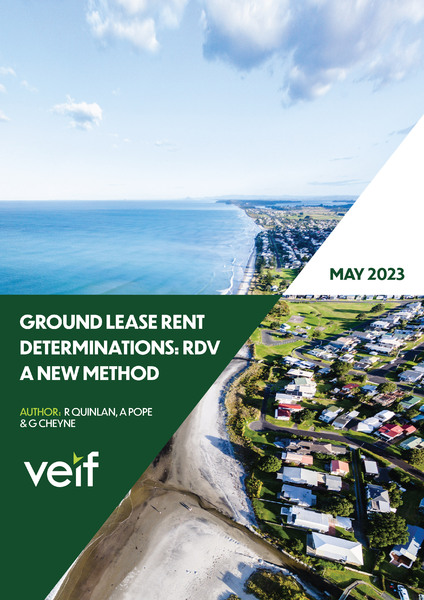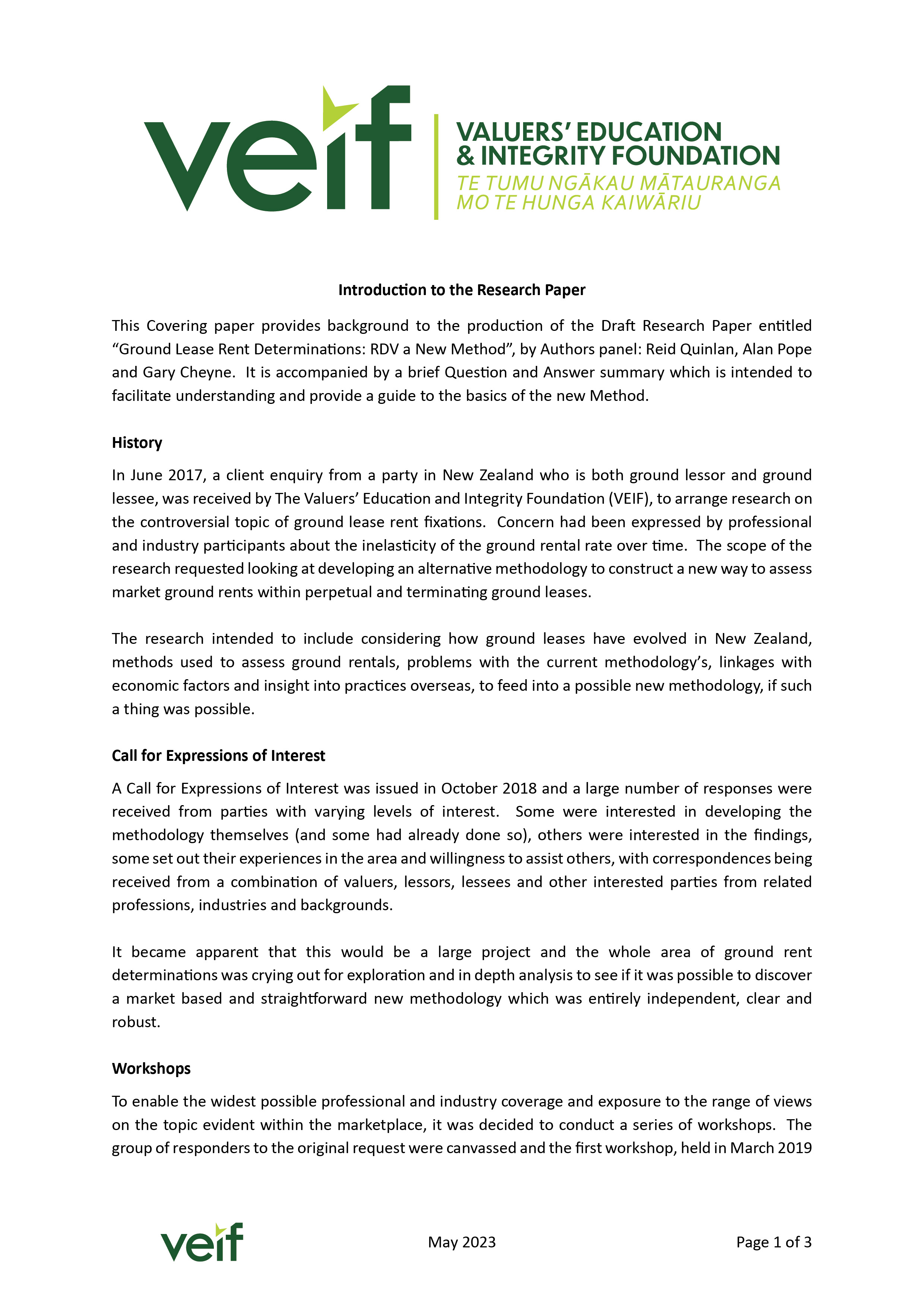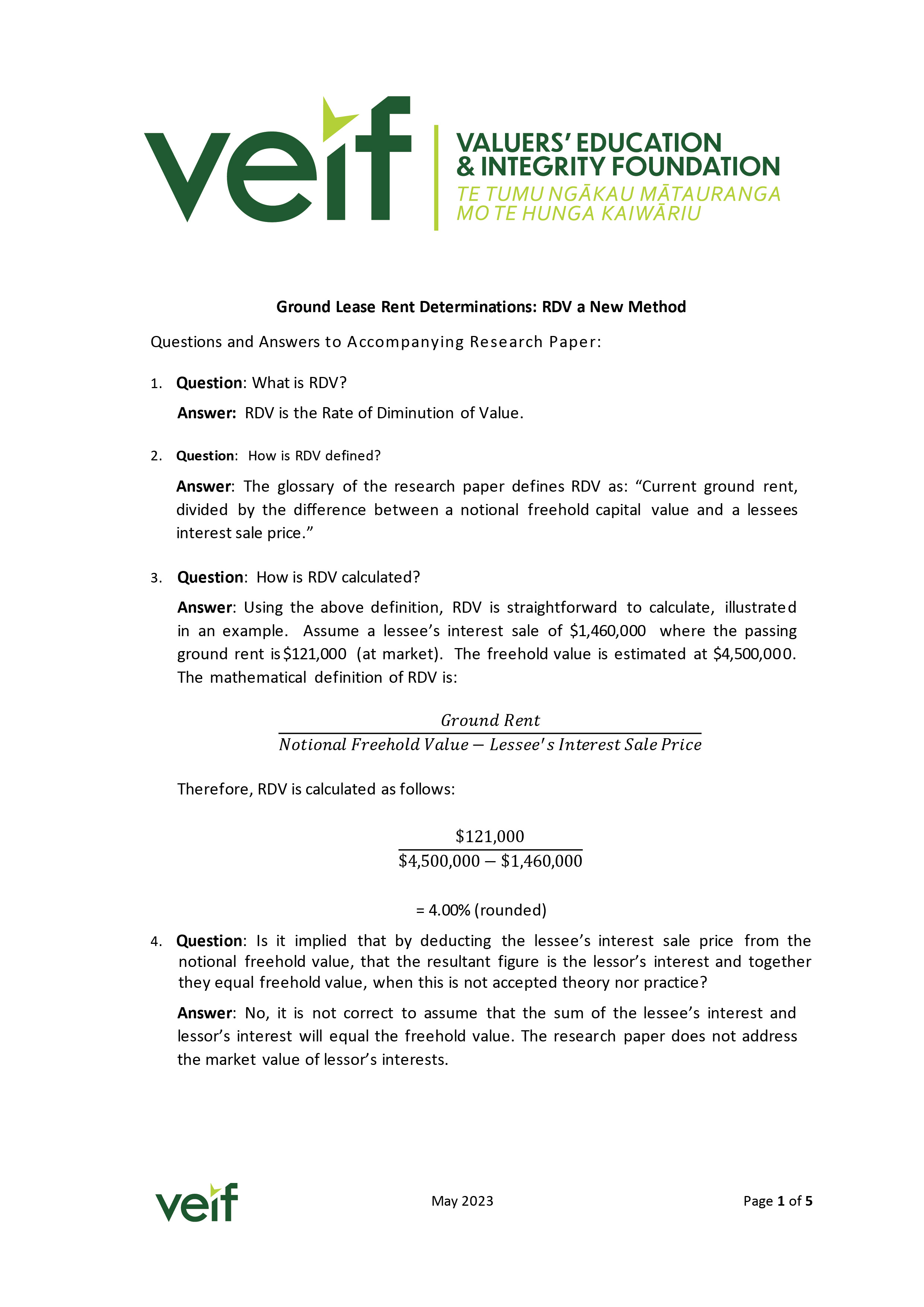Research > Ground Lease Rent Determinations: RDV a New Method
Ground Lease Rent Determinations: RDV a New Method
1 May 2023
The Valuers’ Education and Integrity Foundation (VEIF) is proud to present a Conceptual Paper prepared for professional discussion and review. Now available is the Draft Research Paper entitled “Ground Lease Rent Determinations: RDV a New Method”, by Authors panel: Reid Quinlan, Alan Pope and Gary Cheyne. It is accompanied by a brief Question and Answer summary which is intended to facilitate understanding and provide a guide to the basics of the new method and a paper with a little on the background and process involved in completing the research.

Overview
Glasgow leases are renewable ground leases that are unique to New Zealand, requiring periodic assessment of a fair annual rent of the land disregarding the value of improvements. New ground leases are seldom available as market rental comparisons, and there is no industry agreed formula for assessing ground rents. We examine the context and statutory form of ground leases and identify a condition that new leases must start at a rent that is achievable, given a requirement to buy the existing improvements (if any), with no lease premium.
Sales of lessees’ interests are analysed with the conventional leasehold valuation model, showing negative lease premiums at current ground rental rates. Applying the Conventional model, we endogenously solve an indicative fair ground rental rate of approximately 3% to 4% of land value for a particular market sector. We develop the ‘Rate of Diminution of Value (RDV)’ model to analyse lessees’ interests, which directly measures the trade-off between purchase price and ground rent for leasehold interests. When combined with the zero lease premium condition, the RDV market factor is shown to be the fair ground rental rate, and the results match analysis of the same data in the Conventional model (indicatively 3%–4%). The RDV model is then extended to leases with non-current rents, and into an RDV Indifference model that reconciles ground rental rates on development land, completed leasehold values, GST, and development profit.



